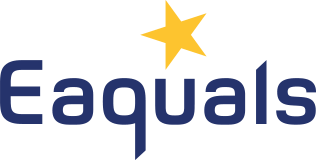Virtual Reality and language learning
“our journey took us to the 2018 EAQUALS conference in Prague where we ran a workshop…The reactions and comments were so positive that it was definitely worth pursuing further.”
This story started over 2 years ago. For Mirjam it was Batman, for me a mere mountain scene and suddenly we were hooked, convinced VR would not only play a role in the future but totally revolutionise education and training.
So off we set on our journey to worlds previously unknown and started our online research on VR and how it potentially enhances learning. On the first leg of our journey, we presented our findings internally to decision takers who were doubtful it would be of benefit when it comes to language learning. Why not, we thought, isn’t that what happens in first language acquisition? Hadn’t immersion previously proven to be beneficial to language learning? Surely we do learn through being exposed to language and culture when we go on a language stay? With VR you can travel without even leaving the room, and what’s more, it’s inclusive – everyone can dive into a new world, regardless of their means or physical condition. Our mission now had a purpose; we were convinced it was worth delving deeper.
Assumptions alone won’t do. The next leg of our journey took us to the 2018 EAQUALS conference in Prague where we ran a workshop to check our assumptions and collect feedback from expert peers. The reactions and comments were so positive that it was definitely worth pursuing further. Desirable yes, but is the use of VR also viable and feasible? With Mirjam as innovation coach and Mecky Rennebaum’s skills for the instructional design, our insatiable desire to validate assumptions led to the next mini-pilot sessions last summer. In both of the ‘course-lab’ sessions we ran (internally with colleagues, externally with potential clients) we took a city trip in our VR Google card & documented our findings. Now there was no stopping us! What we needed next was financial backing. That’s when we teamed up with Nathaly Tschanz of the University of Applied Sciences in Chur, Switzerland, and worked on the lengthy application procedure through Innosuisse, the Swiss innovation fund.
Weeks went by slowly before the news finally arrived: our application had been successful; the seal of approval by the Swiss state! Many thanks to Nathaly and her team in HTW for the weeks of hard work on the 40-something-page application and for the excellent kick-off meeting last week – we can’t wait to get started!
Gigi Saurer & Mirjam Jaeger
Federation of the Migros Cooperatives
Coordination of the Club Schools



